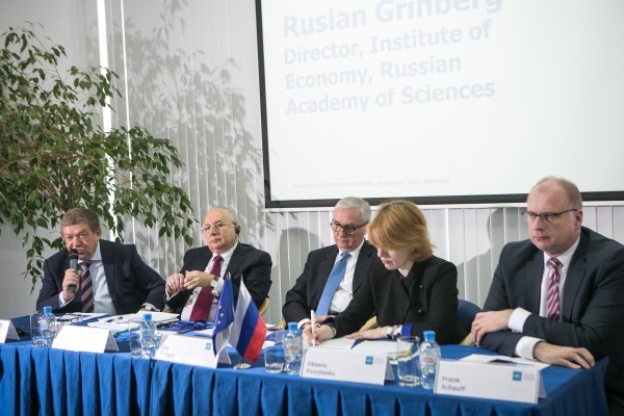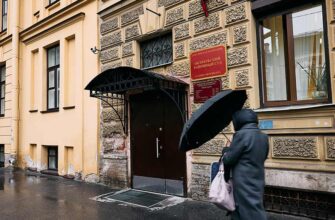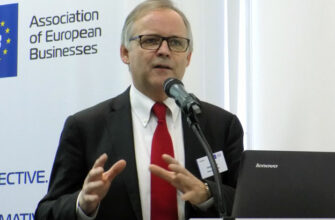On 16 February 2017 at the Association of European businesses (AEB) was held a discussion “Talks on Russian economy”. It was attended by Ruslan Grinberg, head of the research Institute of Economy of Russian Academy of Sciences Gennady Melikyan, member of the Supervisory Board of Sberbank, and Igor Yurgens, President, all-Russian Union of insurers and the President of the Russian Union of insurers. The focus of experts was the crisis in the Russian economy and possible ways out of it.
Ruslan Grinberg criticized a statement of the new Minister of economic development Maxim Oreshkin that Russia overcame the crisis, which was made yesterday at a meeting with Russian President Vladimir Putin. “I don’t know where he got these figures. The growth in natural resource industries is evidence, of course. But the main indicators of the economy are investments and consumer demand. And here we have a very bad situation. So there is no optimism regarding economic growth”. In addition, Greenberg suggested that the continued decline in world oil prices will have a further negative impact on the domestic economy.
Gennady Melikyan stressed that it was incorrect to see the cause of the recession and the downturn in the economy in the fall of oil prices or Western sanctions related to the crisis in Ukraine: this position is more than wrong, it pushes us to refuse from structural reforms and institutional changes. At the same time “it denies the statistics on the situation before we began to slip into recession”. Melikyan pointed out: “You know that from 2000 until the 2008 crisis the annual growth rate of gross domestic product (GDP) in Russia was almost the same as in China. Higher than now in China. The average annual growth was 7.2%. The first stirrings of a recession, the first signs that something was wrong began in 2012. 2013 is already swordplay, 2014-2015 is a real recession”. Therefore, if “we have felt that something is wrong in 2012, then what about the falling prices of oil are we talking about?”. Melikyan stressed that the sanctions were introduced in 2014, that’s why the cause of the fall we “need to look inside”.
Since 2000, according to Mr Melikyan, Russia became sick with the Dutch disease /Approx. ed: “Dutch disease” Effect (of Groningen) is the negative effect of the impact of the strengthening of the real exchange rate on the national currency on economic development as a result of the boom in private sector/.
Melikyan criticized “various payments and non-tax obligations”: the system “Platon”, a paid entry into the city, payable roads, environmental charges, fees for garbage collection, a sharp increase in tax payments on property, real estate and land. According to him, attempts to compensate the losses raised the issue of costs.
In his speech, referring to possible ways out of the crisis, Igor Yurgens used an interesting metaphor, saying that in order to achieve positive changes in the economy, the country just “need to get out of the dugout”.
Summing up the discussion, its moderator Oxana Panchenko noted that out of the participants the impression that they still “believe” in the possibility of positive changes and shifts in the domestic economy.
However, at the end of the meeting Ruslan Grinberg told the following words : “in our country that we rushed from one extreme to the other – after a fierce devotion to state policy, the economy began count on the free market. The result of the country discredited democracy, market economy and liberalism. Not coincidentally, people who adhere to democratic principles in the country amount to no more than 18-20%”.





